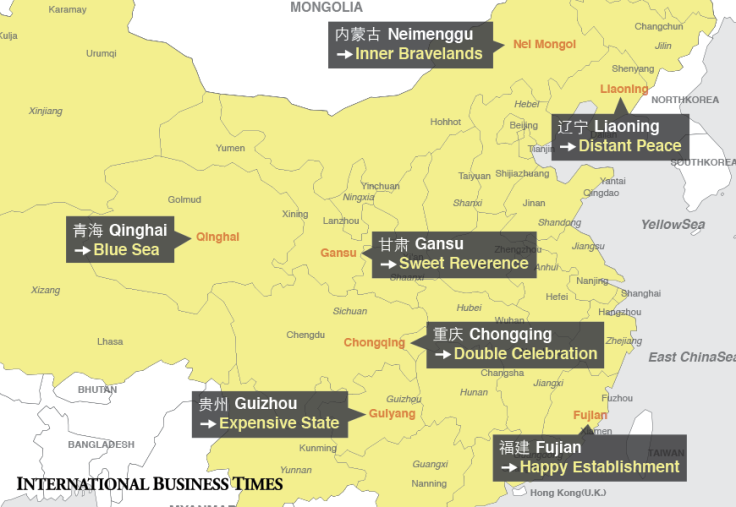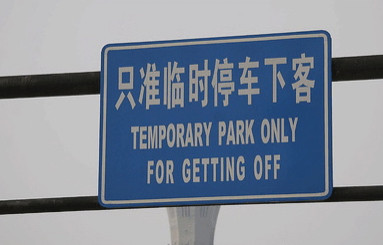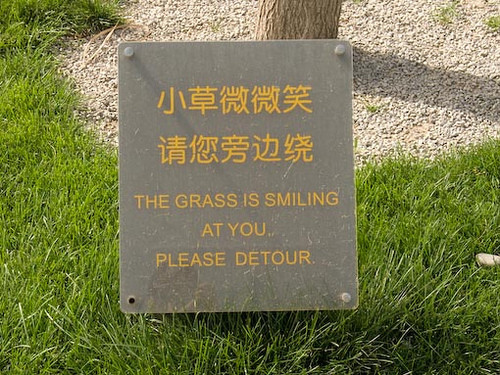When Colloquial Chinese Meets Bad English Translations [PHOTOS]

Learning the ancient language of Chinese can be particularly daunting -- different grammar structures, using the right intonation, learning to write and read an estimated 40,000 characters, and then one still has to decipher the meaning of it all.
China’s province names have either geographical or historic significance, but when translated in their most literal form, some names seem less stately and more ironic.
Some highlights:
For example, Guizhou province, located in southern China, is one of the poorest provinces in the nation. Yet, the literal translation for the poverty-stricken area is Expensive State.
Liaoning, a northern province that borders the recluse and bellicose North Korea, translates to Distant Peace in English.
Recently plagued with several political scandals, including the fall of one of the nation's top political figure, Bo Xilai, Chongqing has had little to celebrate, despite being named Double Celebration in English. Qinghai province's name translates to Blue Sea, and there's nothing wrong with that -- until you see on the map it is landlocked and, in fact, one of the farthest places on Earth from said blue sea. (Qinghai is home to the nation's biggest lakes, to be fair.)
Translations for countries are also worth pointing out:
The United States translates to Beautiful Country, while England is Brave Country.
As for North Korea, its literal translation of Morning Calm suggests a very different picture from reality.
And how about Afghanistan? It's Abundant Sweat.
These literal translations would be considered Chinglish to most who understand both Chinese and English.
Chinglish is a term that has been coined to describe the out-of-context, charmingly bad language used to translate Chinese signs and postings into English. This often happens, because Chinese translations for English words can sometimes be phonetic nonsense translations, such as McDonald’s, which in China is called Maidanglao. It sounds similar to the English name but literally translated means wheat labor.
Chinglish translations also happen, because individual characters, unlike letters, hold their own meaning but when compounded can mean something else.

Literal translations of these words can often lead to pretty funny translation errors. Signs pointing to bathrooms are especially prone to spectacularly, and unwittingly, foul-mouthed mistranslations. Good taste forbids us from publishing the photographic proof, but sometimes the word "gan," which means "dry" in the appropriate contexts, ends up translated into the king of all expletives, the F-bomb, which turns the dry goods shelves at some Chinese supermarkets into something truly weird.
Other times, Chinglish mistranslations occur, because they are taken too literally. Blogger China Mike writes that one of the most common mistakes occur when attempting to translate Chinese idioms.
“As a written language, Chinese also lends itself well to ‘poetic’ -- almost haiku-like -- translations. Instead of simply writing “stay off the grass,” a sign might read, ‘The grass is smiling at you; please be kind.’” Mike writes in his blog.

© Copyright IBTimes 2024. All rights reserved.





















